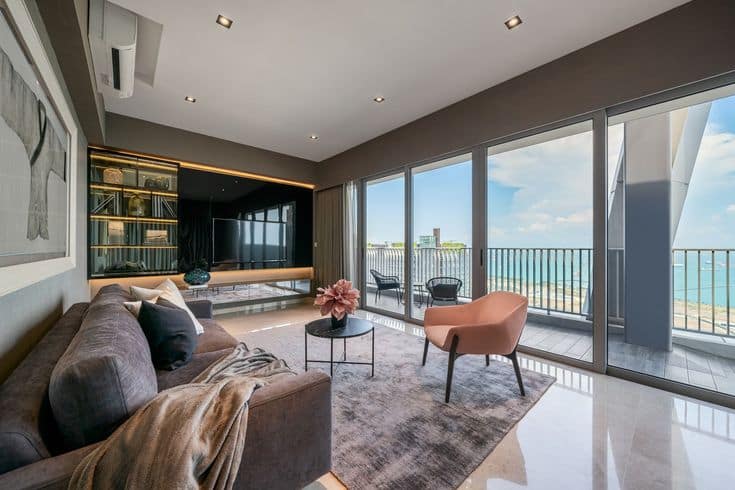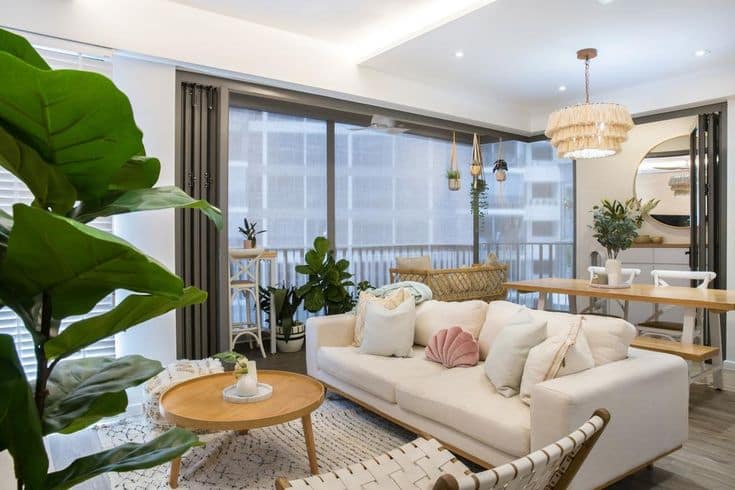When purchasing an old condominium in Singapore, there are several key points to consider. Here are five important factors to keep in mind.

Age and Condition of the property
When buying an older condo in Singapore, it’s important to assess its age and overall condition. Look for signs of wear and tear, maintenance issues, water leaks, cracked tiles, and other potential renovation requirements such as electrical or plumbing upgrades. All of these factors can affect the value of the property and add to your expenses in the future.
Check for any water damage, such as stains on the walls or ceilings. Look for cracks in the tiles or grout. Make sure all of the appliances and fixtures are in working order.
If the condo is older than 20 years, it may need to have its electrical and plumbing systems updated. This can be a costly undertaking, so it’s important to factor this into your budget.
It’s also important to keep in mind that older condos may require more frequent repairs and refurbishments. This is because materials and components degrade over time. For example, you may need to replace the air conditioner or water heater sooner than you would in a newer condo.
Remaining lease and tenure
Check the remaining lease tenure of the condominium. The leasehold period affects the property’s value and potential resale value. Ensure that the remaining lease aligns with your long-term plans and consider the potential for lease extension or collective sales.
When considering en bloc potential, the remaining lease of a property is an important factor to consider. Generally, properties with a longer remaining lease are more attractive for potential en bloc sales. However, the decision to en bloc a property depends on various factors, such as market conditions, developer interest, and the willingness of property owners to sell.
The en bloc price of a property is highly dependent on market conditions and can vary greatly.
One example of En bloc is Mayer Park Condo that was sold to Joint Venture of UOL in Singapore Land Group for S$392.18M, According to marketing agent Edmund Tie’s statement on Thursday evening (Feb 9), The tender award demonstrates that sites with strategic location and exceptional attributes, coupled with a reasonable asking price, will garner strong interest from developers that are understandably becoming selective in their site acquisitions,” said Ms Swee Shou Fern, head of investment advisory at Edmund Tie.

Maintainance and sinking fund
Condominium maintenance and sinking fund are important considerations when buying an older property in Singapore. Older developments may require higher maintenance fees or immediate contributions to the sinking fund for major repairs or upgrades, such as painting the exterior of the building. This can contribute to the property’s future maintenance costs.
The sinking fund is a reserve fund that is used to pay for major repairs and replacements to the condominium’s common property. This includes items such as the roof, elevators, and plumbing system. It is important to have a well-funded sinking fund to avoid having to levy special assessments on homeowners for unexpected expenses.
When buying an older condo, it is important to understand the condominium’s maintenance and sinking fund situation. You can do this by reviewing the condominium management corporation’s (MCST) financial statements. These statements will show you how much the MCST is collecting in maintenance fees and how much it is spending on repairs and maintenance. They will also show you the balance in the sinking fund.
If the condominium has a history of high maintenance fees or special assessments, this is a red flag. It may be an indication that the condominium is in need of major repairs or upgrades, and that the sinking fund is not adequately funded.
Location and Amenities

Evaluate the location of the condominium and its proximity to amenities such as transportation, schools, shopping centres, and parks. Consider your lifestyle preferences and whether the surrounding area meets your needs in terms of convenience and accessibility of the condominium to the major roads, expressways and public transportations such as MRT and bus stops.
Evaluate the neighborhood’s ambiance, safety, and community atmosphere. and the most important is security consider security measures in place such as 24hours security guards and 24/hour CCTV surveillance
Future development plans

Research any upcoming development plans in the vicinity. This includes new infrastructure projects, commercial developments, or zoning changes that could impact the value and livability of the condominium.
Be aware of any potential construction noise or disruptions in the future.
Remember to conduct thorough due diligence, engage professional services when necessary, and weigh these factors against your personal preferences and financial considerations before making a decision to purchase an old condominium in Singapore.


